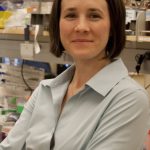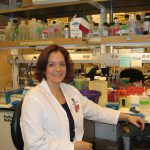Jay Harris: “Without the Research, I’m Not Here.”
Read moreType: V Scholar
Designed to identify, retain and further the careers of talented young investigators. Provides funds directly to scientists developing their own independent laboratory research projects. These grants enable talented young scientists to establish their laboratories and gain a competitive edge necessary to earn additional funding from other sources. The V Scholars determine how to best use the funds in their research projects. The grants are $200,000, two-year commitments.













